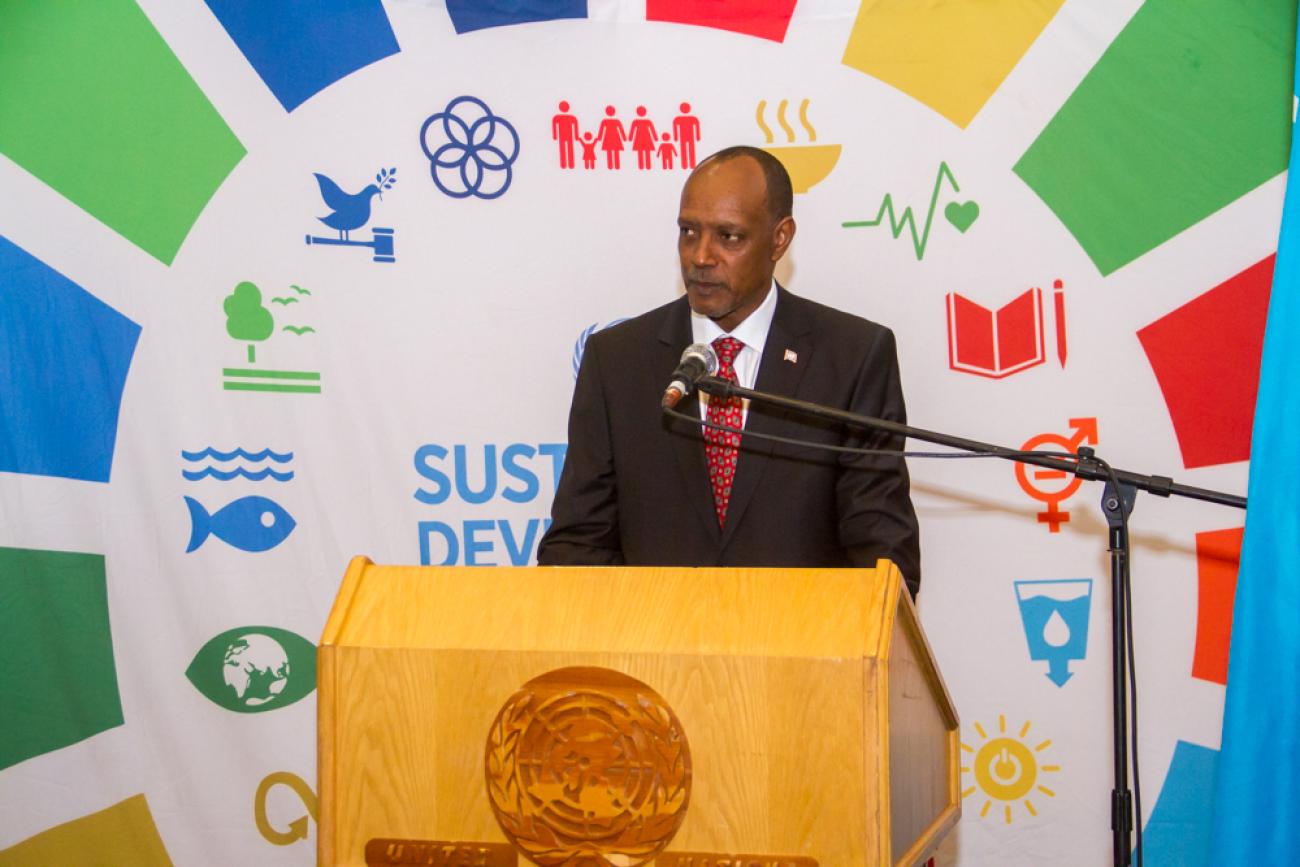Looking back: The UN's response to COVID-19 in 2020

A reflection of the UN's response to the pandemic by the Resident Coordinator.
2020 marked 75 years since the UN Charter was ratified, on the 24th October 1945. Today, the United Nations faces a number of emergencies that we must support to develop the future we want and the future we need. The COVID-19 pandemic has turned from a health crisis to the most severe socio-economic crisis in almost 100 years. At the same time, the devastating effects of climate change are accelerating and must be quickly brought under control.
During the COVID-19 pandemic, the UN in Lesotho has been committed to stay and deliver and to mitigate the threat to our guiding principles - the SDGs. Our current Socio-Economic Response Plan for the Kingdom of Lesotho outlines 18 new activities to combat the socio-economic fallout from the pandemic with a total budget of US$68 million that we are currently fundraising for.
Whilst there is still lots to be done, our 2020 achievements demonstrate a very successful and comprehensive response to the pandemic. To name just a few, we have successfully supported the continuation of health services in all 193 health facilities in the country; we have provided support to over 17,000 community health workers to maintain essential services; we have increased access to water and sanitation for over 360,000 people; we have supported over 225,000 children with distance education solutions and have provided take home rations to over 270,000 children who were reliant on free school meals before the pandemic. We have conducted a number of assessments, including, but not limited to, assessments on employment and productivity, gender, migrant returnees and the 2020 Lesotho National Vulnerability Assessment; all of the aforementioned support informed policy making and thereby a comprehensive response to the pandemic.
At times, our urgent response to the COVID-19 pandemic may have diverted us away from our planned activities as guided by our Development Assistance Framework. This is to be expected as we shift our focus from development assistance to humanitarian assistance under an exceptional and unexpected situation. Looking forward we will need to assess how to balance the humanitarian and development response to ensure that the Kingdom of Lesotho does not renege in the accomplishment of the SDGs.
As I also conclude my assignment in Lesotho, the United Nations in Lesotho stands together with the Kingdom of Lesotho to Build Back Better, and to ensure that the Kingdom of Lesotho is not permanently scarred from the COVID-19 crisis. The United Nations will support the Government of Lesotho to create a Lesotho that is green, equal and fair; to support private sector development and job creation, but in a manner that does not contribute to climate change and provides fair working conditions to all; and to develop strong social safety systems to ensure that all Basotho have access to decent health and education and that nobody falls through the cracks.
It was a pleasure working in Lesotho with you all! Until we meet again, Salang Hantle!









